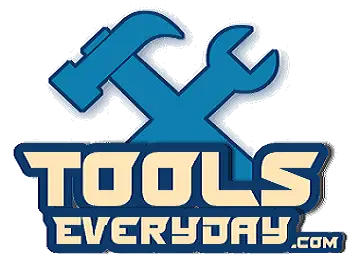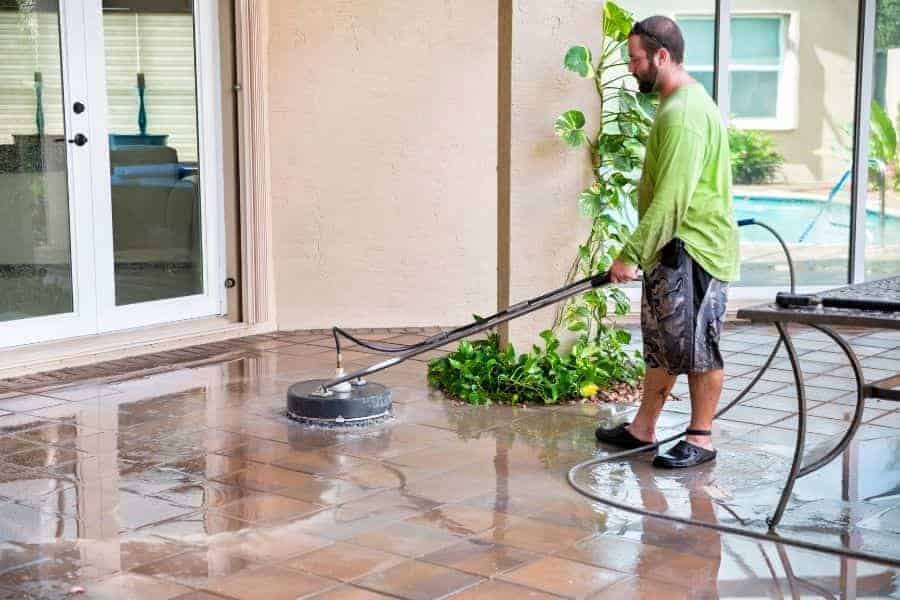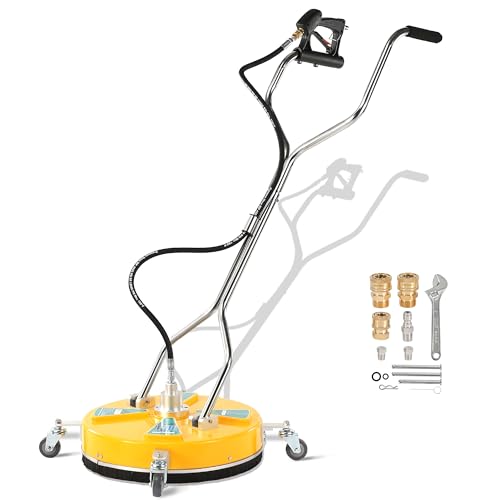Pressure washing has become very popular nowadays, whether you are a homeowner who wants to pressure wash your driveway or have a cleaning business. Having the right pressure washer attachments will make all the difference in cleaning performance and time efficiency. (Below) in this article, I’ll cover some helpful questions to understand better if pressure washer surface cleaners work or are worth it.
Do Pressure Washer Surface Cleaners Work?
The main factor that dictates how well a pressure washer surface cleaner works is the (GPM – gallons per minute) that your pressure washer can deliver to the surface cleaner. Meaning that the higher the flow rate of the pressure washer, the better the surface cleaner will perform.
PSI plays an important role, but it is not as crucial as the gallons per minute of the pressure washer. For example, suppose you have a four gallons per minute pressure washer. In that case, you will probably take baby steps versus something that puts out eight to twelve gallons per minute and can perform fast. So, surface cleaners are convenient and worth having. My suggestion is that if you already own a pressure washer, check the GPM flow rate so you can match the same GPM to the surface cleaner for better results.
Related Pressure washers with Honda engine and CAT Pump (+Electric)
For more on pressure washers with Honda engine and CAT pump read the full article.
How Fast Can You Clean With a Surface Cleaner?
Two main factors will determine how quickly you can clean with a surface cleaner, as follows.
1. Pressure Washer Gallons Per Minute
The more gallons per minute your pressure washer can supply, the faster you will clean with the surface cleaner.
2. Surface Cleaner Size
The size of the surface cleaner will undoubtedly influence how fast you can clean with it. For every (GPM – gallon per minute) your pressure washer produces, you can clean up to four inches of surface cleaner are. For example, suppose you have a four-gallon per minute pressure washer due to multiplication. In that case, usually, a sixteen-inch surface cleaner is suitable for that pressure washer.
Now, if your surface cleaner is too big for the output of your pressure washer, you will have to move slow inches at a time. It is important to note that sizing the surface cleaner based on the pressure washer’s power is critical.
How Does Pressure Washer Surface Cleaner Work?
Pressure washer surface cleaners have a simple mechanism consisting of spray nozzles combined with gallons per minute and psi from the pressure washer to spin. It is essential to clarify that pressure washer surface cleaners do not have or need brushes to clean the concrete. They operate purely on water flow from pressure washers.
The nozzles underneath the surface cleaner rotate closer to the concrete to clean efficiently. Some pressure washer surface cleaners have one nozzle at a ninety-degree angle to the concrete. Another nozzle that is slightly angled creates a lateral movement that causes the spray bar to rotate based on the water flow from a pressure washer.
The pressure washer surface cleaner also needs to be in forwarding motion to clean. Otherwise, the spray nozzles will only rotate in one area and clean a small swath in a circular motion cleaning less efficient that way.
Can Pressure Washer Surface Cleaner Damage Concrete?
The short answer to this question is absolute. (Bellow) I’ll go over four seasons on how a pressure washer surface cleaner can damage concrete as follows.
1. Proper Use
One of the main reasons a pressure washer surface cleaner can damage concrete is moving it too slowly or leaving it idle unattended while it continues to rotate. As I mentioned earlier, the pressure washer surface cleaner must be moving at all times for it to clean properly. I always recommend assessing the integrity of the concrete or materials before you start using your pressure washer surface cleaner to avoid any further damage.
Also, another suggestion is to perform a spot test first. If you notice that the concrete is getting damaged, stop the cleaning process altogether. Therefore, you need to find a speed motion that is fast enough not to damage the concrete but also slow enough to give it a proper cleaning.
2. Broken Nozzles
Another way surface cleaners can damage concrete is by having a broken or damaged nozzle. Surface cleaner nozzles are designed to emit a perfect stream. Therefore, always make sure you have correctly functioning tips with a perfect fan pattern coming out of those spray tips that will help you from damaging the concrete.
3. Wrong Size Nozzles
Not having the right size surface cleaner tip can damage concrete. Always refer to the owner’s manual to ensure that the tips are appropriately sized for the size of the pressure washer surface cleaner.
4. Extreme Vibrations
When using your pressure surface cleaner to clean concrete, always remember that you should stop if you notice extreme vibrations from that surface cleaner. Usually, that means something is bent underneath, or a spray tip is clogged. That will be a clear sign that your pressure washer is not working correctly.
A properly functioning pressure washer runs smoothly and rotates very smoothly. It is normal to notice minimal vibration, but anything extreme should stop the cleaning process and check your surface cleaner for possible repairs. Always be sure to turn off the pressure washer before working with the surface cleaner. Also, be sure to release the pressure because it can hold up to 3000-psi.
Are Pressure Washer Surface Cleaners Worth It?
The pressure washer surface cleaner is a fantastic tool. It works great at cleaning concrete when you use the proper technique and tactics mentioned above. Whether you own a house or are in the cleaning business, it is a must-have tool.
Remember, time is money, and having the right tools is cost-effective. You may be wondering which pressure washer surface cleaner do I need? As I mentioned earlier, always match the pressure washer to the gallons per minute of the surface cleaner.
Most Common Problem With Pressure Washer Surface Cleaners
The most common problem when using a pressure washer surface cleaner is clogged nozzles. Whether you are a homeowner or a contractor, knowing how to master your pressure washer surface cleaner is a must. (Below) I will go over some helpful tips on how to deal with clogged surface cleaner nozzles as follows.
Clogged Nozzles
My suggestion is not to try to repair or unclog the nozzle in the field. Always carry spare nozzles for quick replacement, so you don’t waste time repairing the clogged nozzle. Another thing I want to suggest is that you test the nozzles before each use to eliminate lags and always make sure the spray patterns are all the same.
Also, a standard tool you will need to replace nozzles is a 9/16-inch wrench. So after you have replaced the clogged nozzle and it is relatively new and usable, keep it and clean it at your leisure at the end of the day and on the weekend.
When cleaning spare nozzles, be sure not to damage the O-rings, you can use a soldering iron cleaner tip, or even a dental pick will help. Ensure that all sand or bits of sand clogging the spare nozzle is entirely out of both ends.




